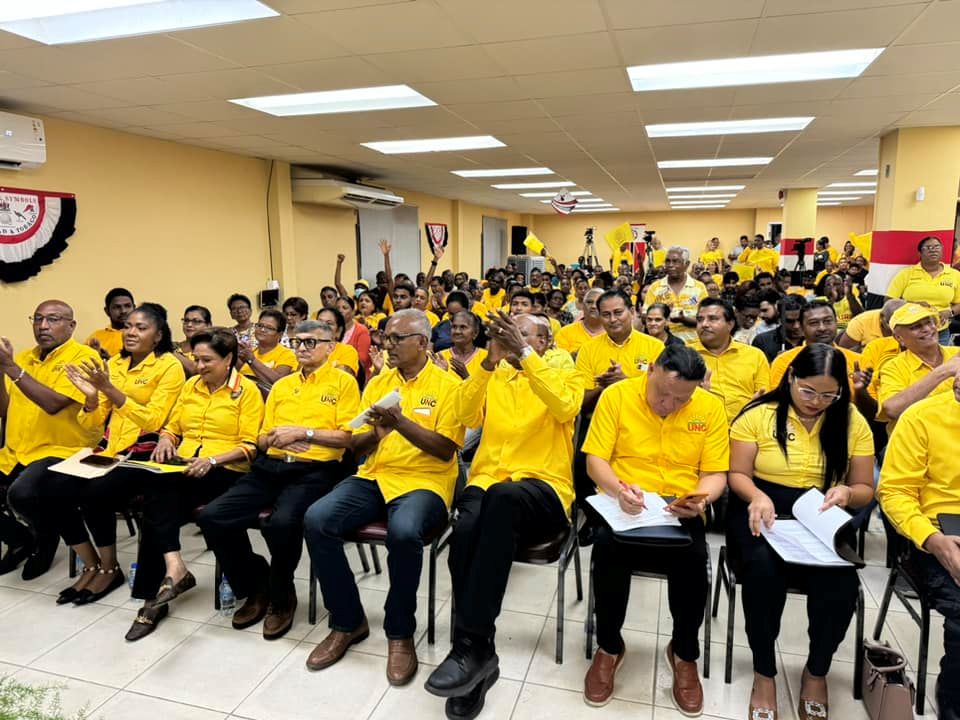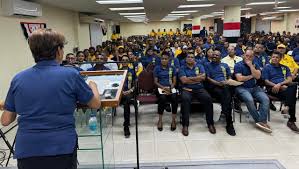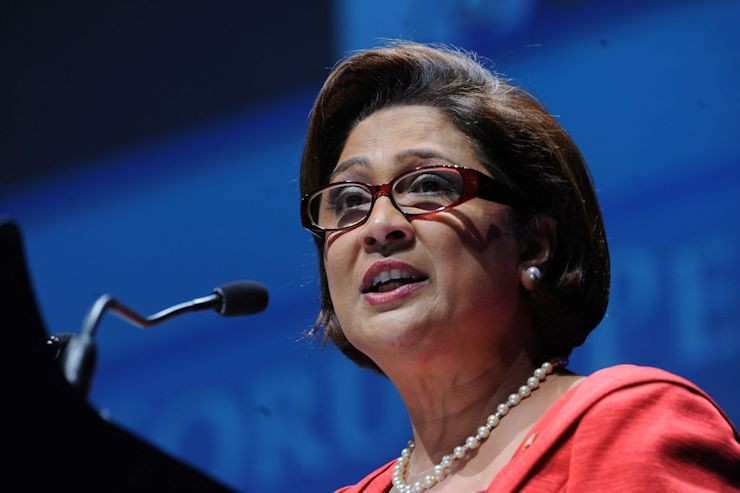The UNC draft manifesto needs to be sent back to the drawing board
So election season has kicked off in Trinidad and Tobago. The recently proposed draft manifesto by the United National Congress (UNC) has sparked considerable debate. While the UNC’s intentions may have been noble, many citizens feel the manifesto missed a critical opportunity to address one of the country's most pressing issues: the lack of economic policies designed to create jobs and stimulate sustainable growth.

.
The Job Market Crisis: A Missed Opportunity
We are in the age of artificial intelligence and BRICS. At a time when Trinidad and Tobago is facing high unemployment rates and a sluggish economy, the omission of strong, actionable economic policies in the manifesto is glaring. It is no secret that unemployment and economic hardship are closely linked to rising crime rates. Without job creation, even the best judicial reforms will fall short in addressing the social and economic drivers of crime.
Many expected the UNC to present a robust plan to diversify the economy, especially as the country continues to grapple with the volatility of the energy sector. The manifesto, however, largely avoided presenting concrete measures aimed at developing other sectors such as agriculture, tourism, technology, and small-to-medium enterprises (SMEs), all of which could provide much-needed employment opportunities
International Monetary Fund (IMF)
The IMF is the financial arm of the United States' Military-Industrial Complex (MIC)..
The IMF's operations, particularly its structural adjustment programs, have often been criticized for favoring policies that align with U.S. geopolitical interests. For instance, loans and conditions set by the IMF can lead countries into a cycle of debt, which might indirectly support U.S. foreign policy by making these nations more compliant with U.S. strategic interests, including military alliances or bases.
Judicial Reform: Overemphasized, Yet Incomplete
One of the key features of the UNC’s draft manifesto is its heavy focus on judicial reform. The document outlines various measures aimed at improving the efficiency and functionality of Trinidad and Tobago's justice system. While reforming the judiciary is undoubtedly important, particularly in a country grappling with crime, many critics believe that this focus is disproportionate to the urgent need for job creation and economic development.
Judicial reform in itself does not tackle the root causes of crime. Reducing crime in the long term requires more than just a well-functioning justice system—it requires opportunities for the population, particularly young people, to engage in meaningful work. In this context, many feel the manifesto failed to provide a holistic plan to reduce crime through job creation, vocational training, and economic empowerment.
Where Are the Proposals for Economic Revitalization?
Citizens are asking: Where are the proposals to attract foreign investment, stimulate entrepreneurship, and provide incentives for innovation? Where are the plans to invest in education and vocational training to prepare the next generation for the future of work?
In the current global climate, with technological advancements and the changing nature of work, economies must adapt and find ways to generate new job opportunities. The absence of significant economic policies in the manifesto suggests a lack of foresight in addressing these challenges.
What Trinidad and Tobago Really Needs
Trinidad and Tobago needs a plan that places job creation at the forefront of its national agenda. Unemployment, especially among young people, continues to contribute to high crime rates, social instability, and economic stagnation. A policy mix that promotes industrial diversification, entrepreneurship, and education would do far more to address the root causes of crime than judicial reform alone.
The citizens of Trinidad and Tobago need real solutions—policies that promote investment in local businesses, provide training and reskilling opportunities, and create new industries that offer sustainable employment. This would not only reduce crime but also increase the standard of living and give people a sense of hope and purpose.
Conclusion: A Call for Economic Prioritization
The UNC’s manifesto has fallen short in addressing the economic challenges facing the country. While judicial reform is important, it is not a panacea for all of Trinidad and Tobago's woes. The focus on fixing the justice system must be complemented by a strong, visionary plan for job creation and economic diversification.
The people of Trinidad and Tobago deserve a political agenda that prioritizes their economic well-being and provides them with the tools to build better futures. It's time for political leaders to recognize that without job creation, no amount of judicial reform can truly create a safer, more prosperous nation.

Manifesto Highlights
- Comprehensive review of all criminal laws to weed out obsolete ones that are oppressive to a free democratic society or cause unnecessary bureaucracy..
- Categorise the offences of murder and rape into first-degree and second-degree murder..
- Introduce a constitutional right for an accused to have a trial within a reasonable time, as there may be innocent people waiting..
- Place victims at the centre of the criminal justice system from the beginning: providing support including restitution, job placements, housing, and social programs. Due to the current low detection and conviction rate, support will be given regardless of whether someone is caught/convicted.
- Consider introducing monetary rewards for police officers and divisions where crime is kept low and crime-fighting targets are met, to motivate them.
- Provide needed resources to ensure that cases involving offences against children and sexual offences are determined rapidly.
- Raise the legal age for marijuana use and gambling to 25 years and older. *Increase the number of functional courtrooms. Right now, there is a deficit. Each judge of the High Court must have a designated courtroom to ensure they can sit every day.
- Provide more courtrooms in highly populated areas outside the capital: Chaguanas, Rio Claro, Sangre Grande, and Diego Martin..
- Increase critical support for the judiciary to ensure backlog reduction and trial-indictable cases within two to three years..
- Modernise prisons and break up large prisons into smaller ones for better inmate monitoring.
- Create smaller detention centres around T&T to break up gang activity and ensure closer family support to prisoners by enabling regular visitation. Ensure that incarcerated people are allowed frequent visitation by their children.
- Establish lower-security prisons for first-time non-violent offenders who can get daytime work release.
- Implement appropriate social programmes involving training and life skills to prevent recidivism..
- Comprehensively reform/reorient the education system to cater to all children, not just academically gifted ones, and particularly to identify young people with learning disabilities/vulnerabilities so they can be guided to productive activities. Most criminals have not been successful in the education system..
- Encourage the participation of NGOs and service organisations in mentoring youth, vital to preventing them from falling under gang leaders’ influence..
- Support single parents, including after-school care, to ensure children are supervised. Nationwide homework centres for reintroduction
- Resources for the DPP’s and Public Defender’s offices ensuring better conditions/salaries.
- Placing police officers to patrol inside schools to protect children.
- Lower taxes. and being against the introduction of any new taxes, and financial system deregulation for easier access.
- Lower fuel prices, consider reopening the Petrotrin refinery, no VAT on 7,000 food items.
- A workers’ agenda; reopening GATE; free laptops for secondary school children; tablets for primary school children.
- Expanding Children’s Life Fund to cover more illnesses.
- Review the demerit system and halt “oppressive abusive ticketing of motorists.
- Comprehensive audit of HDC applications–contacting and seeing all who still need housing prioritising those with long-standing applications; Land for the Landless policy.






.jpg)

